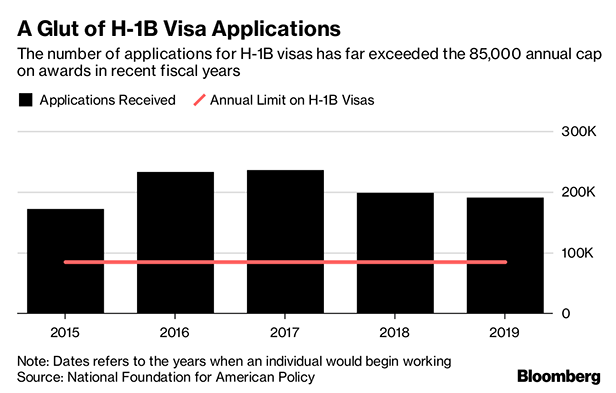 The recent move by USCIS "creates traps" for individuals already working legally in the country —or seeking to work here—by upping the consequences for clerical errors, said Todd Schulte, president of immigration reform lobbying group Fwd.us, which was founded by technology leaders including Facebook Inc. CEO Mark Zuckerberg and Dropbox Inc. CEO Drew Houston.And it could affect more than just tech companies, Schulte said. "Cracking down on legal immigration is simply this: It's encouraging innovation and job growth to happen someplace else." Microsoft Corp. expanded its Vancouver office several years ago, in part due to Canada's more lax visa regulations.The updated USCIS policies add a layer of instability for employers. “There's a chance that not only is the case going to be denied, but also that the beneficiary could be placed in removal proceedings," said Hassan Ahmad, managing attorney with the HMA law firm. "How can you do business with this type of uncertainty?"USCIS spokesman Michael Bars said the policy changes are part of an effort to help "cut down on frivolous applications, reduce waste, and help ensure legitimate, law abiding petitioners aren't undermined by those able to game our system."The number of requests for evidence to H-1B visa petitions rose 45 percent for the period of Jan.1 to Aug. 31, 2017 from the same period a year earlier, according to a report by Reuters. Given the volume of the requests, "it may seem like it would be a natural option" for USCIS officers to want to leverage the new policies to avoid issuing additional RFE's, said Anastasia Tonello, president of the American Immigration Lawyers Association. But without the requests for evidence, applicants don't have an opportunity to explain themselves if they make a mistake that could be as minor as writing their work address incorrectly on an application, she said.
The recent move by USCIS "creates traps" for individuals already working legally in the country —or seeking to work here—by upping the consequences for clerical errors, said Todd Schulte, president of immigration reform lobbying group Fwd.us, which was founded by technology leaders including Facebook Inc. CEO Mark Zuckerberg and Dropbox Inc. CEO Drew Houston.And it could affect more than just tech companies, Schulte said. "Cracking down on legal immigration is simply this: It's encouraging innovation and job growth to happen someplace else." Microsoft Corp. expanded its Vancouver office several years ago, in part due to Canada's more lax visa regulations.The updated USCIS policies add a layer of instability for employers. “There's a chance that not only is the case going to be denied, but also that the beneficiary could be placed in removal proceedings," said Hassan Ahmad, managing attorney with the HMA law firm. "How can you do business with this type of uncertainty?"USCIS spokesman Michael Bars said the policy changes are part of an effort to help "cut down on frivolous applications, reduce waste, and help ensure legitimate, law abiding petitioners aren't undermined by those able to game our system."The number of requests for evidence to H-1B visa petitions rose 45 percent for the period of Jan.1 to Aug. 31, 2017 from the same period a year earlier, according to a report by Reuters. Given the volume of the requests, "it may seem like it would be a natural option" for USCIS officers to want to leverage the new policies to avoid issuing additional RFE's, said Anastasia Tonello, president of the American Immigration Lawyers Association. But without the requests for evidence, applicants don't have an opportunity to explain themselves if they make a mistake that could be as minor as writing their work address incorrectly on an application, she said.© Touchpoint Markets, All Rights Reserved. Request academic re-use from www.copyright.com. All other uses, submit a request to [email protected]. For more inforrmation visit Asset & Logo Licensing.



